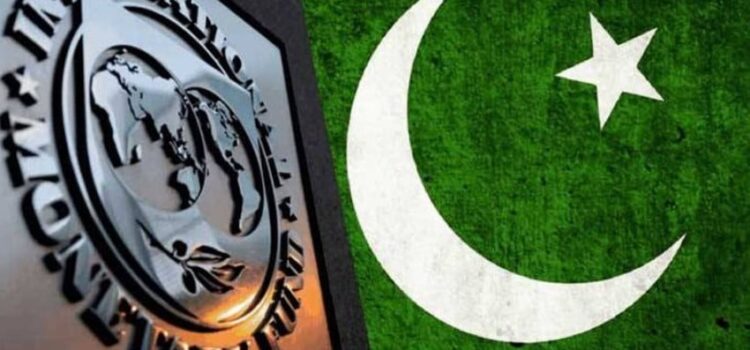Islamabad: The International Monetary Fund (IMF) is currently assessing Pakistan’s judicial and regulatory framework as part of its ongoing $7 billion Extended Fund Facility (EFF). The primary objective is to address governance and corruption vulnerabilities, ensuring transparency and institutional accountability.
A technical mission from the IMF has arrived in Pakistan for a week-long review of six key governance-related sectors and institutions. According to the Ministry of Finance, the assessment aligns with Pakistan’s commitment to strengthening institutional capacities to combat corruption, foster inclusive growth, and create a competitive business environment.
IMF’s Governance and Corruption Diagnostic Assessment (GCDA)
As part of this initiative, Pakistan must publish a Governance and Corruption Diagnostic Assessment (GCDA) report by July 2025. The report will evaluate governance challenges and propose structural reforms to enhance transparency and accountability.
Key Areas of Review
The IMF team is engaging with prominent state institutions, including:
- Finance Division
- Federal Board of Revenue (FBR)
- State Bank of Pakistan (SBP)
- Auditor General of Pakistan
- Securities and Exchange Commission of Pakistan (SECP)
- Election Commission of Pakistan (ECP)
- Ministry of Law and Justice
The assessment covers six core governance functions:
- Fiscal Governance – Examining public financial management and budget transparency.
- Central Bank Governance – Assessing SBP’s operational independence and monetary policies.
- Financial Sector Oversight – Ensuring regulatory compliance in banking and finance.
- Market Regulation – Evaluating transparency in trade and investment policies.
- Rule of Law – Reviewing the judicial system’s role in enforcing economic regulations.
- Anti-Money Laundering (AML) and Counter-Financing of Terrorism (CFT) – Strengthening measures to prevent illicit financial activities.
Pakistan’s Commitment to Anti-Corruption Reforms
Pakistan is obligated to publish the UN Convention against Corruption Review Report immediately after its review. Furthermore, the government has pledged to enact legislative amendments—pending Supreme Court clearance—to reinforce the National Accountability Bureau (NAB) and empower Provincial Anti-Corruption Establishments. These measures aim to:
- Enhance NAB’s independence and effectiveness.
- Allow anti-corruption bodies to investigate money laundering linked to corruption.
- Enable Provincial Anti-Corruption Establishments to receive financial intelligence from the Financial Monitoring Unit (FMU).
- Equip institutions with adequate resources and training to conduct parallel financial investigations.
Legislative Reforms on Asset Declarations
By February 2025, the government must amend the Civil Servants Act 1973 to mandate the digital filing and public accessibility of asset declarations for high-level officials (BPS 17-22). This includes both domestic and foreign assets held by officials or their family members, with safeguards to protect personal data and privacy.
IMF’s Role in Enhancing Governance
Since 1997, the IMF has integrated governance and anti-corruption policies into its economic programs. The 2018 Governance Policy introduced a structured approach to addressing governance vulnerabilities. The IMF’s GCDA reports have been conducted in 20 countries, including Sri Lanka, Zambia, and Cameroon, while 10 more assessments are underway.
The IMF maintains that fostering good governance—through rule of law, transparency, and accountability—is essential for economic stability. Pakistan’s compliance with these reforms will be crucial for sustaining long-term economic growth and maintaining private-sector confidence.
Conclusion
The IMF’s governance assessment underscores the importance of institutional reforms in Pakistan’s economic trajectory. With transparency and accountability at the core of these reforms, the country aims to create a level playing field for businesses and investments, ensuring sustainable development.
Pakistan’s commitment to publishing governance and corruption reports, amending anti-corruption laws, and enhancing judicial independence will be instrumental in securing continued IMF support and fostering a stable economic environment.
For More Information Visit Our Homepage:






